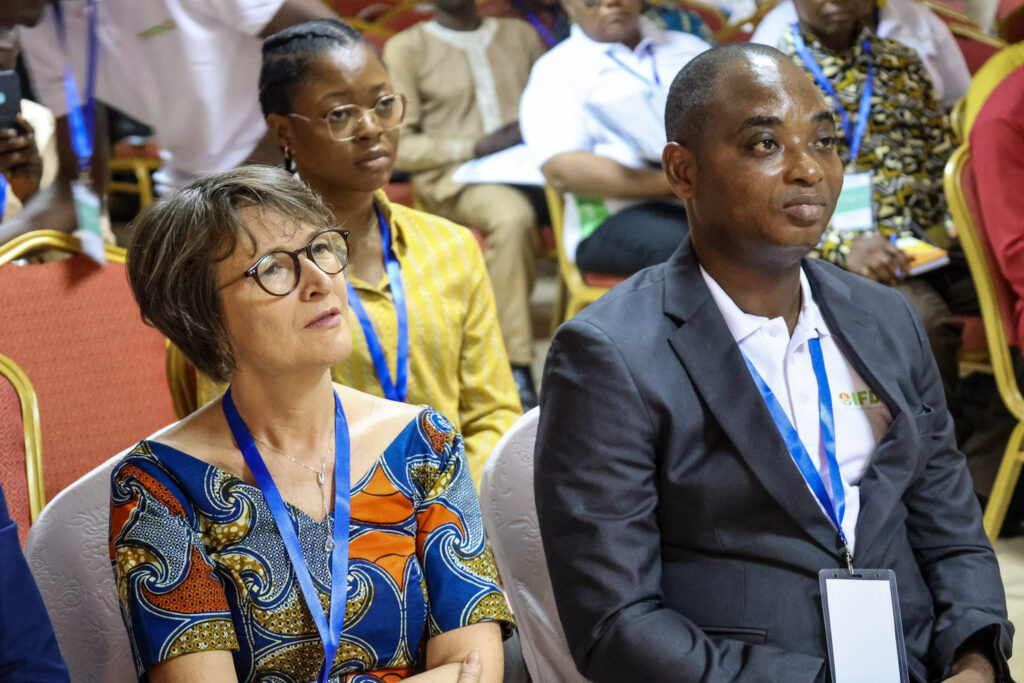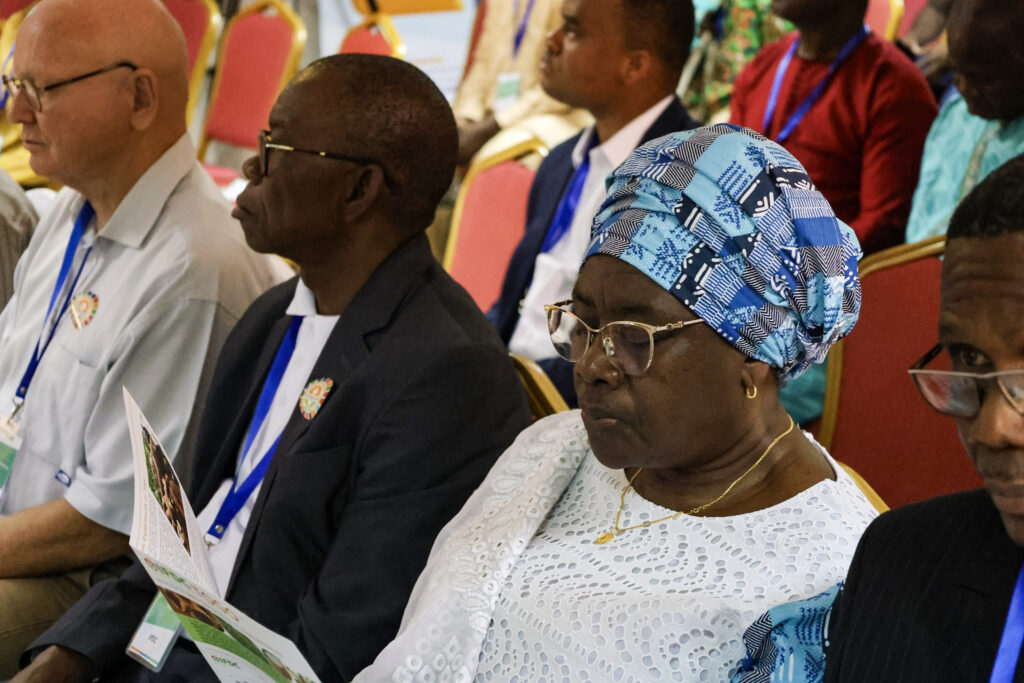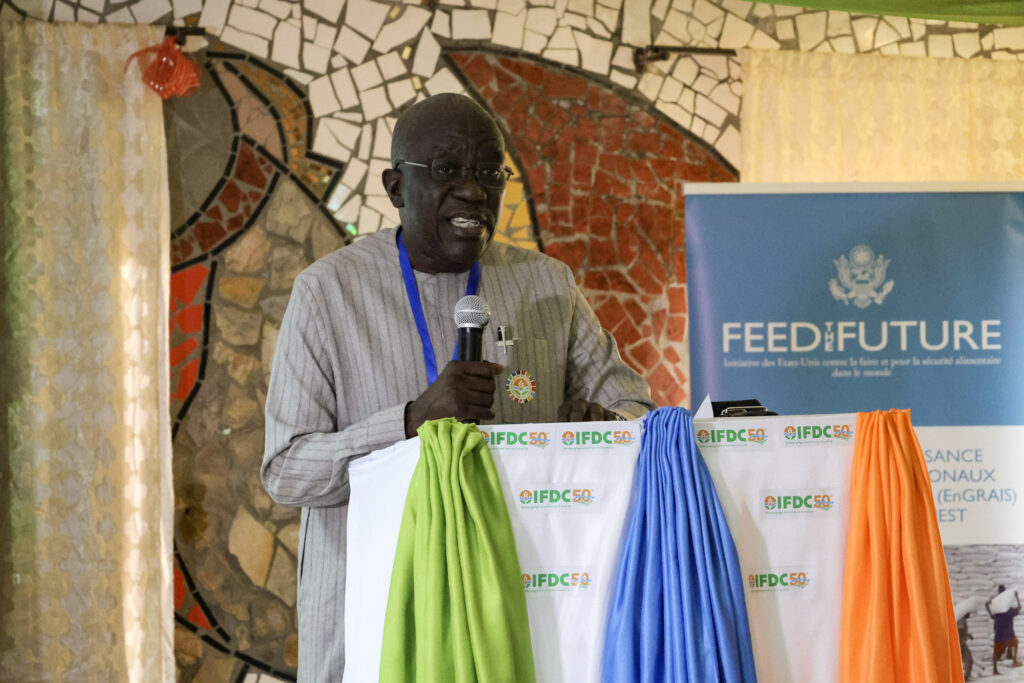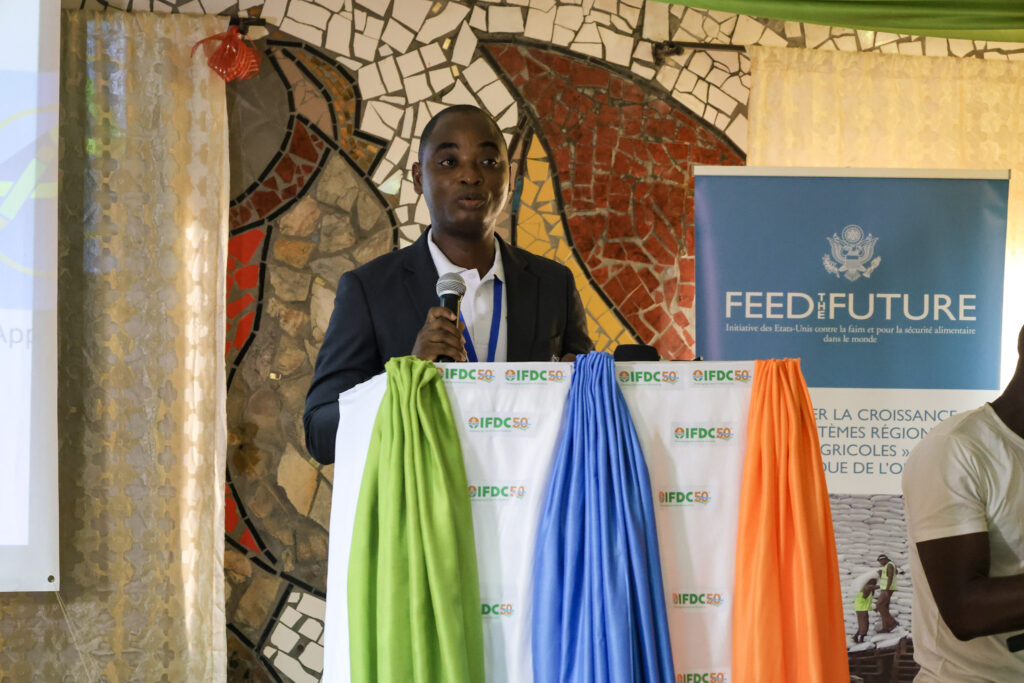
On April 25, the International Fertilizer Development Center (IFDC) hosted an Open Door event in Togo, marking a significant milestone in IFDC’s mission to enhance agricultural productivity and sustainability in Africa. Held in the lively city of Lomé, this event brought together diverse groups of stakeholders, including government officials, agricultural experts, farmers, and representatives from various development organizations. With the theme “50 Years of Developing Agriculture from the Ground Up,” IFDC’s Open Door event highlighted strategic advances in the agricultural field through its many projects.
The Open Door event served as a platform to showcase IFDC’s competencies, innovations, and the tangible impact of its projects across Togo and the broader West African region. Attendees had the opportunity to explore interactive exhibits and results that highlighted key initiatives.
Highlights of the event included a series of panel discussions and Q&A sessions featuring prominent figures in the agriculture sector. Topics ranged from policy development and sustainable farming practices to the role of technology in modern agriculture. These discussions provided a valuable forum for exchanging ideas, addressing challenges, and identifying opportunities for collaboration.

“As we move forward at IFDC, we remain focused on our goal of transforming agriculture through science, innovation, and collaboration.”
Adodo Abalo, IFDC Country Director for Togo and Benin
Keynote speakers included representatives from the Togolese Government, international development agencies, and leading agricultural organizations. Their insights underscored the importance of multi-stakeholder partnerships in driving agricultural innovation and development.
The event underscored the imperative of preserving soil health to ensure sustainable agricultural productivity. Concrete suggestions emerged, such as integrating irrigation specialists into agricultural training programs to meet the needs of rural areas.
“We’re in a context of climate shifts where we’re noticing that the vagaries of rain are having a huge impact on agricultural producers. Climate shifts are giving significant challenges, disrupting productivity. We believe that irrigation can be a promising solution, but it faces enormous financial challenges. We’re going to work on this for climate-resilient agriculture,” said IFDC Director of Enabling Impact Dr. Bocar Diagana, emphasizing the need for better agricultural productivity through the effective use of agricultural inputs.

Since opening its first office in Togo in 1987, IFDC has enabled millions of smallholder farmers to become entrepreneurs engaged in local and regional agricultural trade. IFDC’s current flagship project in Togo is the USAID-funded Feed the Future Enhancing Growth through Regional Agricultural Input Systems Project for West Africa. Adodo Abalo, IFDC Country Director for Togo and Benin, highlighted the initiative’s achievements: “The project has trained nearly 414 extension agents in the country, including 104 women, in agricultural input packages, among other things.” Looking to the future, Abalo continued, “By continuing to support and develop sustainable agricultural practices, we aim to create a more resilient and productive agriculture sector in Togo and beyond. Here’s to another 50 years of groundbreaking achievements in agricultural development.”

These efforts align with Togo’s agricultural policy, which aims to develop agriculture through the efficient use of available resources throughout value chains. Anani Kodjogan Kpadenou, Director of Plant Sectors at the Togolese Ministry of Agriculture, Livestock, and Rural Development, remarked, “Soil health is the cornerstone of sustainable, productive agriculture. If we work on the soil, we work on the whole chain. It’s important to work on the resilience of a production system.”
The IFDC Open Door event in Togo was a resounding success in showcasing the IFDC’s dedication to agricultural innovation and sustainability, bringing together a diverse array of stakeholders, facilitating meaningful discussions, and strengthening commitment to supporting farmers and communities.




